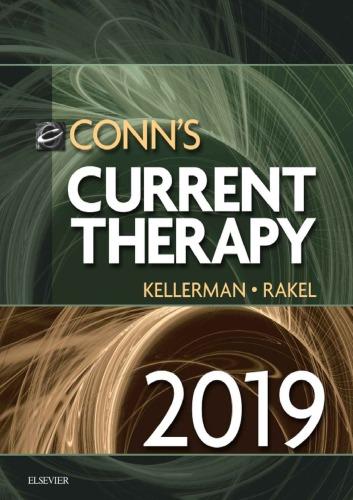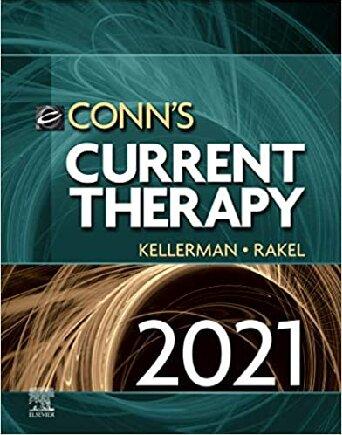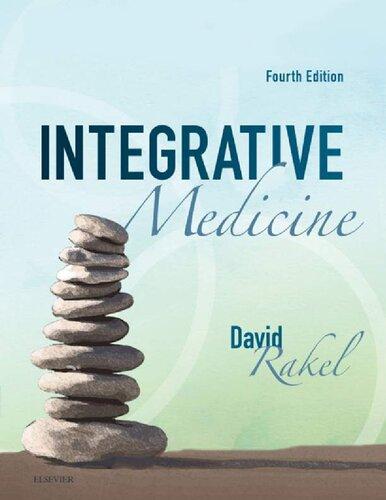Chapter XV
I was glad to discover that Ughtred Gascoyne had left all his little fortune, excepting such as did not return to the Gascoyne coffers, to Catherine Goodsall, and that she would be quite well off. She looked very woebegone when I saw her again, but she was not a pessimist, and soon pulled herself together; not that I believe she ever forgot him. She gave me a tie-pin that had belonged to him, because he had been very fond of me, and had often talked of me to her.
A Sunday or two afterwards I lunched with Sibella and her husband. The old hunger for her was beginning to grow on me, and impel me towards her.
They were for a wonder alone, and Lionel looked discontented. He had evidently reached the frame of mind peculiar to vulgar folk, who think that unless they are living at high pressure and constantly entertaining or being entertained by those they consider great they are dropping out of it. Great folk can afford their holidays, but such social climbers as Lionel Holland can have no respite from the treadmill of entertainment.
I think he was verily too stupid to see that it was his wife’s beauty and charm, lacking in depth though they were, to which they owed their improved position.
Sir Anthony Cross—who I knew was with them constantly—must have played a very clever game, a much cleverer game than I had imagined him capable of. To do Lionel justice, he was not the sort of man to play the complaisant husband for the sake of any position, and he had evidently not grasped that Sir Anthony’s presence at their house was solely and entirely due to admiration of his wife.
I was certain that so far Sir Anthony had not even been permitted to declare himself. Sibella was vain enough of his attention to keep him dangling after her, but she had no notion of making
herself cheap to the men of a society the women of which she was anxious to propitiate.
I suppose Lionel thought that an old lover like myself, who had been discarded for years, was no possible danger. Possibly—for the minx was clever—he had absolute confidence in Sibella.
At any rate, after lunch he left us together. It was the first time we had been alone since her marriage.
It was a little awkward, but I exerted myself to free the situation from constraint.
“Things have changed,” I said, lighting another cigarette with a languid feeling of enjoyment at being alone with her, and conscious that the ménage I had contemplated had begun.
“You are wonderful, Israel. It is quite extraordinary how people talk about you, and quote what you say, and yet——” She paused, and I laughed.
“And yet I began life in a third-rate Clapham lodging-house, and am still only a clerk in a stockbroker’s office.”
“As far as that goes, I can’t quite see why people make such a fuss of us.”
“Can’t you? Then look in the glass.”
Sibella rippled with laughter. She loved flattery, and expected it.
“My dear child,” I said lazily, “everything finds its level. We were bound to rise. You and I, Sibella, are very wonderful people.”
“And Lionel?”
“Lionel is not in the least wonderful. He is good-looking, but by himself he would never have wheeled the shortest flight above the ordinary.”
“I won’t have you talking against my husband.”
“I am not talking against him. I have rather an affection for Lionel. He is your husband.”
“It is sometimes borne in upon me, Israel, and I cannot say why, that you are extraordinarily wicked.”
“What makes you think that?”
“There is something mysterious about you. There always was even as a boy, and it has grown with you.”
I did not like to hear this. Above all people, a secret murderer cannot afford to suggest the mysterious.
“Do you remember what a pretty little boy you were?” she asked. “Perfectly.”
“Do you know, I’ve got a lock of your hair that I cut off at a children’s party. It’s such a dear, silky little curl. Quite black.”
“Let me see it.”
She rose and left the room. Returning, she unwrapped the covering of tissue paper and showed me the curl, as soft and sweet as the day it was cut.
“My hair is coarser than that now,” I laughed.
“It’s very nice hair, Israel.”
And then I took her in my arms and kissed her, which may seem rather premature, but there had been that in the conversation which had led up to the situation. Of course, Sibella would not have been a woman had she not declared that she would never forget that she was now Lionel’s wife, and that on a former occasion she must have been mad. She repeated that she always knew I was wicked, and that I had gained an ascendancy over her. She then proceeded to tell me that I was in love with Lady Pebworth, with whom she had lately had a coolness. That lady evidently thought that she had purchased by her introductions a perpetual right to the subservience of Sibella and her husband. She was now experiencing the utter callousness of Sibella’s disposition towards her own sex, a callousness she was exceedingly clever at masking till she had obtained what she wanted.
It was difficult to say where the weak point in Sibella’s armour came in. She was, of course, vain, but as a rule her vanity was not allowed to interfere with her interests. She was dominated to a great extent by looks. It was this passion for beautiful people that had made it a perfectly safe proceeding to introduce Sir Anthony Cross to her. I was sure that no man so destitute of pretensions to physical charm could ever win her suffrages. In fact, I was pleased to know that he was always to be seen near her, for his case was hopeless.
“Perhaps it is a very good thing we did not marry, Sibella. A strict barrier should always be preserved between the official and the
sentimental roles.”
“My dear Israel, Lionel is much more sentimental than you are.”
“Women are amazingly quick. Perhaps sentiment is the wrong word; I should have said romantic.”
“What is the difference?”
“There is all the difference. The sentimentalist has no sense of humour. The romanticist generally has too much. A romanticist may possess the salt of cynicism; a sentimentalist seldom.”
Sibella had something of an intellect, and I think, perhaps, that was also a weak point, for inasmuch as it was a poorly developed sort of affair it was easily dazzled, and she would at the merest flicker from an opposing mind credit it with much that it did not possess.
I had led the conversation away from Lady Pebworth, but she brought it back again, and flattered me by insisting on learning from my own lips that I had no affection for the lady.
Fortunately she only knew of Miss Gascoyne’s existence in a vague sort of way.
“What would you do, Sibella, if I married?”
“Forbid it.”
“You think that would be effective?”
“If it were not I should never speak to you again.”
“Ah, unfortunately it is forbidden to a discretion like yours to take such extreme measures.”
“Why?”
“Lionel would want to know why we had quarrelled.”
How she would act when it came to telling her that I was engaged to Miss Gascoyne—which I hoped would shortly be the case I could not say. Miss Gascoyne’s extreme beauty and distinction would not help the matter.
I had my hands quite full, for I was working very hard at the office, and making myself as indispensable as possible to Mr. Gascoyne. The rest of the staff had ceased being jealous when they saw that I was determined to get what I wanted. Such remarks as “one of those damned Jews again,” unintentionally overheard by me, I ignored with the sublime cynicism of my race. Nothing was to be
gained by being aware of them, less was to be gained by cherishing resentment. Jews are not good at revenge; it is not business. Shylock’s case was exceptional, and, given time, his common sense would have reasserted itself.
I was even treated as the natural heir to the business, for I had wisely thrown out veiled hints of a partnership to the managing clerk.
I was about this time somewhat scared by a suitor appearing for Miss Gascoyne’s hand, and such a suitor as must have made any mere business man tremble for his own chance.
I knew that Miss Gascoyne was constantly receiving the very best invitations, which she seldom accepted. I also knew that she and her uncle and aunt had dined with the Gascoynes, and I had heard mentioned, not, however, as a matter of any great consequence, that they had met there a Mr. Hibbert-Wyllie. I was therefore a little astonished on calling one Sunday afternoon to find Mr. HibbertWyllie, a young man undeniably handsome and well-bred, in the drawing-room. I could not stay long, but even in the short time I was there it was obvious that the object of his visit was Miss Gascoyne. He was evidently rich, for outside the door was an exceedingly luxurious motor. I looked him up in the landed gentry, and found that he was one of the untitled nobility. He had a huge estate, and was related to half the peerage. His sisters were a duchess and two countesses, and his younger brother was already a distinguished member of Parliament. He was Lord-Lieutenant of his county, and altogether a notable person. It seemed as if, granting any inclination on Miss Gascoyne’s part, my fate was sealed.
The next time I called Mrs. Gascoyne said to me when we were alone:
“I am afraid my niece will not be with us much longer.”
“Indeed?”
I think she must have had some notion that I had dreamed of Miss Gascoyne as my wife, for there was an accent of kindliness in her voice.
“You have met Mr. Hibbert-Wyllie?”
“Oh, yes.” I almost gasped. Surely she was not going to tell me that Miss Gascoyne was engaged to him already.
“It will be a splendid match. She is quite the woman to take her place at the head of county society.”
“They are engaged?”
“Oh dear no, but anyone can see that there is a mutual attraction, and it is altogether so exactly suitable that we hope it will take place.”
I had never before considered Mrs. Gascoyne a fool.
Mr. Gascoyne came in soon after, and she began again. I think she believed it the kindest thing to do.
“I have just been talking to Israel about Edith and Mr. HibbertWyllie.”
Mr. Gascoyne looked astonished, and gave me a side-long glance.
“Indeed? Don’t you think, my dear, we are a little premature?”
“There is no harm in discussing it.”
In a few minutes Mr. Hibbert-Wyllie and Miss Gascoyne came in.
I had never met Mr. Hibbert-Wyllie anywhere except at the Gascoynes’. He had all the unfailing and general courtesy of the absolutely exclusive. He was not a man who, as far as I could gather, went out much, but he entertained Royalty a good deal, having some of the finest shooting in England.
Of his manner to me I had certainly no reason to complain, but I think he was a little astonished when Mr. Gascoyne very pointedly introduced me as a cousin. I suppose my Semitic appearance had hardly prepared him for the news. Since, however, I was a relation he could not doubt my general authenticity.
Personally I would much sooner Mr. Gascoyne had not been so ready to insist on my being of Gascoyne blood.
I walked home wondering whether after all Mrs. Gascoyne was not mistaken.
I had studied Miss Gascoyne very carefully, and I could not detect any indications that she was likely to capitulate to Mr. HibbertWyllie. At the same time, she was outwardly an impassive woman, and appearances might be deceptive.
I admired and desired her even beyond Sibella, certainly beyond Sibella now that I was sure of the latter. I was not in the least conscious of any absurdity in arranging my affections so as to dovetail with my love for two women. Even theoretical polygamy comes quite naturally to me, for all Jews are polygamists at heart, even if as a nation they find it convenient to disown it. King Solomon, with his enormous female collection, remains their typical domestic character.
I desired Miss Gascoyne, and was determined to run the risk of asking her to marry me, though I was perfectly aware that it was after marriage that the battle would begin. She was not a woman to endure tamely any insult to the conventions, and she was not likely to agree with Dr. Johnson’s dictum: ‘Why, sir, a wise woman does not trouble herself about her husband’s infidelities.’ Domestic life would be a different matter if this were a recognised rule, which woman was brought up to regard as a principle of life. It is a fact, however, which a wise woman learns early, that a man’s infidelities need not in any way affect his supreme devotion to a particular female. The objection that in that case a woman should have the same privilege is childish, and can of course be refuted on the most elementary utilitarian grounds. If she desired such liberty, a fact which I doubt in the case of the normal woman, I think matters would have been differently arranged, and a more elastic scheme of rearing the young in civilised communities established. I certainly was prepared to sustain my passion for both women, and if society made it difficult, why, I must meet society with its own weapons. I was not going to agree to forego one woman because to a slightly greater degree I desired the other.
I might find out when matters settled down, as I hoped one day they would, that I loved Sibella the better. At present she was at a disadvantage, as the woman possessed always must be, by the side of the woman unpossessed. It was not perhaps brains that lifted Miss Gascoyne above Sibella; it was character. Miss Gascoyne would have sacrificed everything for principle. I could not imagine Sibella sacrificing much, even for prejudice.
I lived for the next few weeks in the greatest suspense. Mr. Hibbert-Wyllie was constantly at the Gascoynes’, and I was startled by a false report that the engagement was arranged and about to be announced. I heard it at Lady Pebworth’s. Her ladyship was a sort of cousin of Mr. Hibbert-Wyllie’s. It turned out to be a false rumour, but I spent a sleepless night. I spoke to Mr. Gascoyne about it the next day at the office.
“I hear that Mr. Hibbert-Wyllie and Miss Gascoyne are engaged.”
“Good gracious, I’ve heard nothing about it.”
In my relief I laughed gaily. “Then there can’t be any truth in it.”
“Who told you?”
“I heard it at Lady Pebworth’s.”
“Then it is evidently expected. If it takes place it is a match of my wife’s making, but I shouldn’t wonder if after all she were disappointed.”
“It would be a splendid match,” I said, hypocritically. He looked at me keenly.
“You are very clever at disguising your feelings, Israel. I had no idea you were so subtle.”
I had made a mistake, and appeared before him for one moment in my true character.
“Where a woman is concerned men discover unexpected attributes.”
“That is true.” He was too tactful to pursue the subject of my admiration for Miss Gascoyne further, and continued: “No one has a greater respect for rank and its obligations than my niece. At the same time, I don’t think a throne would tempt her to lie about her feelings.”
I was lunching with Grahame that day. We had not seen each other for some time, but his steady blue eyes met mine with no diminution of friendship. He was at the moment slave to a romance of a most inconvenient type. He had fallen in love with quite a common girl, and was unhappy when she was out of his sight. Luckily there was no question of his marrying her. Had it been necessary I verily believe he would have done so, for his heart compelled all sacrifices.
“We never see each other now, Israel.”
I knew how to appeal to Grahame.
“Does that matter with a friendship as strong as ours?”
“Of course it does not affect our friendship, but still one likes to see one’s friends now and then.”
“Has it been altogether my fault?”
“Well, I suppose not,” admitted Grahame.
“I’ll put you to the test. Let us go out of town from Saturday till Monday. I know a ripping little seaside hotel, and I love the sea in winter.” He coloured and looked confused, and I added quickly: “You can’t come?”
“Well, I——”
“Don’t prevaricate, Grahame. Of course you can’t come. In the first place, you have promised to take her to a theatre on Saturday evening. You are lunching with her on Sunday. You are driving her to the Star and Garter at Richmond to tea in the afternoon, and you are coming back to dine somewhere very luxurious with her in the evening.”
He laughed. “That’s very near it.”
“And in two years’ time, or even sooner, her face won’t stir a passing emotion in you.”
“Don’t, Israel, you hurt.”
“I’m sorry, but if you did come away you would be thinking of nothing but her the whole time.”
“I am afraid you are right.”
“You are a sentimentalist, Grahame, only, thank goodness, not a maudlin one, and sentimentalists are only possible during the entr’actes.”
“Thanks.”
My liking and friendship for Grahame were a proof of how sincere I could be if people did not stand in the way of my great design. I suppose I ought to have felt some remorse, considering that Sibella was his sister, but after all such relationships are purely accidental. The fact remains that Grahame might have asked for almost any sacrifice that did not interfere with my slow subterranean tunnelling to the Gascoyne peerage.
Chapter XVI
Miss Gascoyne refused Mr. Hibbert-Wyllie. I was first made aware of this fact by the announcement in the Morning Post that he had left London, and proposed to go for a six weeks’ yachting cruise in the Mediterranean.
I hastened to call on Mrs. Gascoyne when I knew she would be alone.
“So very extraordinary, Israel,” she said. “I had almost looked upon the thing as settled, but she refused him point-blank. It’s my first and last attempt at match-making. I think Mr. Hibbert-Wyllie in his inmost heart was a little surprised. He took it very well, poor fellow, although I believe he felt quite broken-hearted. It’s very strange, for it’s not like Edith to lead a man on and then throw him over.”
“Did she lead him on?” I asked.
“Surely you must have seen that?”
“Well, I can’t exactly say that I did.”
“But they went everywhere together, picture-galleries, concerts, theatres, lectures.”
“Who asked him?” I interjected, slily.
Mrs. Gascoyne was one of those straight-dealing folk to whom it was perfectly possible to point out a mistake in judgment without creating an unfriendly atmosphere.
“Do you mean to suggest that the mischief has been of my doing, Israel?”
“Dear lady, I mean to say that in your unselfish anxiety to marry your niece brilliantly you imagined a state of things which did not exist.”
“Exactly; you mean that I’m a dreadful old mischief-maker.”
“You know I don’t mean that.”
I always adopted in my attitude towards Mrs. Gascoyne a touch of ingenuousness which I found eminently effective. It impressed her with a strong belief in my sincerity; in fact, talking to her I have known myself believe in my own sincerity, so free from guile was her manner of thought and speech.
A conviction, the result of some reflection, had forced itself upon me that with my secret inevitably striving to write itself on my face and manner it would be well to cultivate as much as possible the society of the simple-minded, in order to borrow something of their mood. Mood is everything in influencing surroundings. I am still unable to see why a murderer should not go through life with a perfect inward peace, providing his associates are the right people. Apart from a certain love of secret romances, I prefer the society of the simple-minded and the good; just as in order to preserve a proper balance of mind so much time should be spent in the country and so much time in town:—a constant going from the artificial to nature and back again from nature to the artificial. A right proportion of light and shade is a great factor in human happiness.
“I trust Edith means to marry,” continued Mrs. Gascoyne. “It would be a crime if so much charm and character were wasted.”
“Do you think it is necessarily wasted because a woman does not marry?”
“I am old-fashioned, Israel, and I think a woman’s vocation is marriage.”
“A great many women must be without a vocation,” I laughed.
“That is no reason why as many as have the opportunity should not fulfil it. Now, when you marry, Israel——”
At that moment Miss Gascoyne entered the room. She was a little embarrassed, as if she were aware that I knew all about Wyllie’s proposal and her refusal.
She was not the woman to dismiss a lover lightly and with a mere sensation of triumph at her own conquest. She had, I was sure, suffered in a way which most women would not have done.
With most women the dismissal of a lover brings with it a certain feeling of power. It is the one moment at which their sex can be truly said to rule.
Miss Gascoyne’s manner had in it a trace of sadness, probably, I thought, expressive of regret that she had been unable to accept as a husband a man whom she thoroughly respected and who perhaps she even felt was in many ways her natural mate. Perhaps the event had led to a certain amount of retrospection and analysis of her own feelings. Lovers are modest, yet at the same time I fancy a favoured lover has as a rule a very fair impression that he is not distasteful, however fluttered he may be before he has made sure of his prize. So by some curious undercurrent flowing between us I gathered that Miss Gascoyne was more interested in my visits than she had ever been before. I had nothing very tangible to go on. There was no sudden development of coquetry, such as a smaller-minded woman would have displayed. She showed towards me the same even friendship, and we did not see more of each other. Perhaps I gathered the increasing warmth of her feelings from a certain relief and gladness at my arrival which even she could not conceal, or it might have been from a certain deference to my opinion.
To the ordinary observer it would have appeared almost incredible that this queenly, beautiful creature of good birth should prefer a stockbroker’s clerk to Mr. Hibbert-Wyllie, one of the richest men in England, and connected with half the peerage. Busybodies would have argued that her pride, her sense of family, had always been stronger than her affections; which would have shown how very wrong busybodies, who are necessarily limited to a judgment based on the superficial, can be.
I had taken Grahame Hallward to see the Gascoynes, at Mr. Gascoyne’s special invitation. The latter had met him with me in the City, and had conceived a great liking for him.
“You can always tell a man by his friends, Israel,” he had said to me, “and young Hallward seems an altogether delightful fellow.”
I could not forbear smiling. As a rule, it may be true that birds of a feather flock together, and that a man can be judged by the company he keeps, but at the same time it is curious what a man will put up with in the friend of his heart. The friendship of Grahame Hallward and myself was not dependent on any strong community of tastes and interests. It was the outcome of his own loyal nature,
which, having made a friend, held to him. Mrs. and Miss Gascoyne liked him from the first.
He grasped the situation between Miss Gascoyne and myself at once, and he was the one person with whom I permitted myself to discuss it. He was enthusiastic in his admiration.
“She is a queenly woman, Israel. Have you known her long?”
“About a year.”
“Well, you’re a lucky chap.”
“What do you mean?”
“Mustn’t I discuss the matter? Tell me to shut up, and I will.”
“You know I will discuss anything with you.”
He gave me an affectionate look.
“Are you struck, Israel?”
“All of a heap.” I always adopted a fresh, breezy way of talking with Grahame. I think that is why he believes in my innocence to this day, and also why he is suffering so much. He never saw the corners of my character, although he had known me so many years. I always appeared to him frank and affectionate.
“She’ll suit you better than Sibella would have done.”
Had I been without the ambitions I was possessed of, Miss Gascoyne would have done nothing of the kind. Sibella’s decadent temperament would have furnished me with far more entertainment. But Edith Gascoyne was on the road to my objective. She was the most natural mistress in the world for Hammerton Castle.
“It’s all rot my thinking of such a thing,” I said, true to the character in which I instinctively appeared before Grahame. “She’s got money of her own, and I’m a beggarly stockbroker’s clerk with three hundred and fifty a year.”
“Judging by Mr. Gascoyne’s manner, I should say he meant you to be a little more than that one of these days.”
“Oh, I’m not such a hypocrite as to pretend that it doesn’t look as if he meant to do something for me, but I may have ever so long to wait till then.”
“Don’t you make any money on your own account?”
“Oh, a bit—nothing to speak of.”
Grahame must have mentioned Miss Gascoyne to Sibella, because the next time I called she asked me why I had never spoken of her.
“I don’t know, I’m sure,” I answered, carelessly.
I was glad that Grahame had saved me the trouble of breaking the fact of her existence to Sibella. I was on perfectly good terms with the latter now, and she had quite overcome any scruples about deceiving “poor Lionel.” She had in fact not known her own decadence till I had exploited it for her. She was revenged by my becoming intensely jealous of her. After all, she was meeting daily a great number of men who were willing to dance attendance on her till further notice, and it was impossible and unnatural that she should not find some of them attractive, and having been taught infidelity she might profit only too well by the instruction. I behaved with the greatest discretion. I had no mind to have all my plans upset by a divorce case. Mr. Gascoyne would inevitably have shown me the door, whilst my chances with Miss Gascoyne would have disappeared entirely. No, if I could not give up so delirious a vice as Sibella it behoved me to be very careful, and I think I can flatter myself that Lionel never had the least suspicion. I suppose a guilty wife must always be in dread of disclosing her secret in the hours of sleep, like the lady in the opera, but I don’t think Sibella was sufficiently disturbed by the consciousness of sin to have her very sound slumbers interrupted.
I was jealous of her, and however much I might upbraid myself for such a weakness I was unable to control it. Woman-like, she very soon discovered the fact, and I was somewhat at her mercy.
Sooner or later, she must inevitably learn all about Miss Gascoyne’s existence, and I was glad that Grahame had broken the ice.
“She is very beautiful, is she not?”
“I believe she is considered lovely.”
“Then I can’t understand your not having mentioned her.”
There was a touch of asperity in Sibella’s voice.
“Why should I mention her?”
“Because as far as I can make out you are there constantly.”
“It is to my advantage to make myself agreeable to Mr. and Mrs. Gascoyne, and,” I added hastily, for I never appeared as acting from interested motives more than I could help, “I am very fond of them.”
“And very fond of Miss Gascoyne.”
Sibella’s was not the nature to exercise much control over rising jealousy.
“What nonsense! As far as that goes, you would not have much to complain of if I were to marry Miss Gascoyne.”
She looked at me with frightened eyes.
“If I thought you meant that——” she faltered.
“Well, you must remember that you and I might have fulfilled our natural destiny and married.”
Sibella laughed in a not altogether nice way.
“That would have been a very pleasant arrangement. We should have been so comfortably off, shouldn’t we?”
It gave me an advantage to pretend that it was a cause of eternal grief to me that we were not married, so I answered:
“Well, I’ve no doubt we could have scraped along.”
“Scraped along!” And she laughed again, but she was not nearly so amused as I was at hearing myself use such an expression. “I can’t imagine either of us, Israel, scraping along. We should have hated each other in a week.”
“We should never have done that, Sibella. We have a subconsciousness of each other’s weaknesses, and we know each other’s good points better than anyone else could. We should always love each other.”
“I think, Israel, if I had not been so sure that you loved me, I should not have risked marrying Lionel. I could never have believed that good looks could bore one so soon.”
“I believe that good-looking people who are stupid get on one’s nerves sooner than plain people who are stupid. The latter do feel that they must make an effort. The former are supremely well contented, and seldom take the trouble to make themselves agreeable.”
“Lionel is not only stupid, he is a little vulgar.”
Sibella’s frank recognition of the faults of her belongings had always been in striking contrast to Grahame’s loyalty, which would allow no disparagement of anyone he was allied to.
“I suppose we shall settle down one of these fine days,” continued Sibella. “We shall get tired of scheming for interviews, and plotting and planning our lives so as to make them fit with a secret.”
“My dear Sibella, I had no idea you were such a philosopher. I thought your reflections never carried you further than the moment.”
“Oh, I didn’t think it out myself. I read it in a book, but I feel it to be true, all the same.”
“You mean we shall tire of each other?”
“Yes.”
“Then we shall be tired of each other, and in that condition of affairs there is no pain.”
Sibella’s two blue lakes—in which to those who could read there swam any amount of moral fishiness—brimmed over.
“Don’t talk like that, Israel. I do love you, although you may not believe it. If I had known all I know now about my feelings before I got married I do not think I could have been induced to marry Lionel.” And she wept.
I took her in my arms and kissed the moist rose of her lips and caressed her yellow hair. Most men dislike seeing a woman in tears; to the artist in romance it has its value if he keep his real sympathies well in the background.
“I should like to know the Gascoynes, Israel.”
This had been inevitable. I had not the least wish for Sibella and Edith to be made known to each other. Not that in the case of such diverse characters there was likely to be the least exchange of confidences, but they were certainly better apart. I could not imagine Miss Gascoyne approving of Sibella; I could not conceive Sibella understanding Miss Gascoyne, or thinking her other than somewhat of a prig.
I betrayed not the least perturbation at her request, however.
“Of course you must meet,” I said, “but you know how I hate premeditated introductions. They are never a success.”
Sibella, woman-like, looked unconscious of any reticence on my part on the subject, but I felt that she suspected it. Well, she had been made aware of Miss Gascoyne’s existence in as tactful a manner as possible.
“What would you do if I were to marry, Sibella?” This was a question I was very fond of asking her.
“I don’t know; it all depends on whom you married, and whether you married for love, or——”
“Or interest, you mean. I could not do the former very well, as I am in love with you, but you must admit it would be foolish not to do the latter.”
“I suppose there is something in marrying for love,” said Sibella, a little gloomily.
“In the poorer classes I should think it meant everything. In the case of the well-to-do it is nothing like so important.”
“I thought I was in love with Lionel.”
“Yes, Sibella, to do you justice I believe you did.”
“And when I discovered that I was not it was too late to draw back.”
Like all people in love we derived a never-ending pleasure from going backwards and forwards over the whole psychological battleground of our romance.
Lionel was often out of the way. He aspired to lead the life of a very smart young man indeed. He confided to me that it was somewhat of a mystery to him that in all the years he had been about town he had only lately succeeded in getting into the particular set he desired to mix with. He was a member of one or two extremely select clubs, although the absolute holy of holies he could not enter, despite the fact that Sir Anthony was still as far off Sibella as he had ever been—at least, such was my impression. The infatuated baronet was prepared to thrust Lionel down the throats of his most intimate circle.
Sir Anthony might have a curious pronunciation of the Queen’s English, which dispensed with final “g’s,” and clipped the majority of words in an altogether surprising manner; he might wear checks which to a chess enthusiast would at once have suggested a
problem; he might have a partiality for spats and white bowlers; he might even swear occasionally in the presence of women, but in spite of all these things he remained undeniably a gentleman; for being a gentleman has nothing to do with grammar or morals. In time a street urchin may acquire the one, and a Nonconformist parson may have the other, but the fact of being a gentleman resides in the individual’s consciousness. Therefore it is useless for those to whom public companies and cheeses and cheap teas have stood for the goose with the golden eggs to watch my lord’s peculiarities or the characteristics of even plain John Brown, gentleman. They never can be gentlemen. Their sons may. Their sons’ sons surely will be, but they themselves will feel conscious that they are not the right article till their dying day. They may be the best of fellows, the most upright of men, the most polished of speakers, but they will hear it whispered behind their backs every now and then that “Hang it all, the man’s not a gentleman, you know!”
And I am convinced that had I, Israel Rank, been completely a gentleman on both sides I could never have penned the above snobbish paragraph. It is the reticence of gentlemen, and their lack of statement of claim, that keeps up all the barriers and holds democracy at bay.
Lionel Holland might have felt more secure if his father had sent him to Eton and Oxford, which he could well have afforded to do, but to old Mr. Holland these were almost mythical places. Lionel himself spoke with characteristic unkindness of his father for not having done so. He was, fortunately for himself, impervious to many slights and snubs which would have driven a more self-respecting youth back into his own circle.
When I had first advised him to go in for politics I did not imagine the matter would have been so easily arranged. Another and a cleverer man, equally rich, might have waited for years for such an opportunity. The seat he was selected to contest happened, however, to be in that part of the country in which lay Sir Anthony Cross’s estate, and what with Sir Anthony’s own influence and the influence of the people around with whom he was connected by ties
of marriage or of interest, he was practically able to secure Lionel’s election. If the latter had the least notion of Sir Anthony’s real motive for all this attention he was evidently prepared to accept it, and laugh in his sleeve at the fool who was carrying his pigs to such a bad market. The son of the man who had risen to wealth from the position of a street boy had plenty of shrewd cunning, and could bide his time. Men of high and noble honour and unstainable integrity do not make fortunes, or at least very rarely, and the valuable qualities of those who do are not as a rule lost in a generation.
Chapter XVII
My affairs stood thus. I proposed to marry Miss Gascoyne if I could, but I had no notion of breaking with Sibella.
All this time I was closely debating which of the obstacles in my way I should remove next.
There had been three Henry Gascoynes. The youngest was gone. There remained two, and one of them, nearly ninety, was scarcely worth considering. He was hardly likely to marry, and if he did so children were almost out of the question, although I had not made myself acquainted with his physical condition and method of life. He lived the existence of a recluse on a miniature estate somewhere in the lake district. None of the Gascoynes that I was acquainted with had ever met him.
The remaining Henry Gascoyne was a parson and a childless widower. He was sixty-two years of age. His cure was in Lincolnshire, and one of the very few livings still worth having. The eminently spiritual method of selection practised by the Established Church was testified to by the fact that the living had been the gift of his wife’s father, and the claims of a curate who had done the work of the parish for thirty years, representing the valetudinarian and octogenarian vicar, had been passed over. Country livings are an appanage of family, not of church. Even that good old-fashioned custom, however, is going with the diminution in the value of tithes. It is no use struggling to retain what is not worth having.
Henry Gascoyne must be my next victim if I were not to play the coward and draw back, wasting so much good work already done. The very “if” that entered into my mind warned me that my nerve could not endure for ever. I had thought the preservation of nerve merely a question of self-control, but as I grew older I realised that
there were many and complex human emotional developments in perpetual siege of that valuable attribute.
One thing at a time, and as it would not be advisable to try my luck with Miss Gascoyne just yet, I decided to devote myself to inquiring into the affairs of the Reverend Henry Gascoyne.
Each undertaking of the kind became more and more difficult to manage. An introduction to the Reverend Henry Gascoyne would tie my hands. My presence on the occasion of a third Gascoyne dying a tragic death might become the subject of remark, and once the hue and cry was raised evidence might accumulate rapidly enough, and, as is often the case, most unexpectedly. Even Ughtred Gascoyne’s death might become a support to suspicion, though there might never be any direct proof that I had had a hand in it. Indeed, it was prolonged reflection on this matter that made me realise that my nerve was not an impregnable fortress.
Still, I could not draw back. What duty is to many people my ambition was to me. It had to be gone through, though hell fire waited for me when it was attained. It was not that I was incapable of rehearsing the penalties of failure, but that I realised that if once I let my imagination loose among such possibilities chaos would ensue.
I took down Crockford’s and perused it. The Reverend Henry Gascoyne had been ordained at twenty-three. Evidently the valetudinarian rector was on his last legs at the time, and it had been advisable to have his successor in readiness. On going into the matter it turned out to be as I expected. After spending two years as curate of a smart West End church he had stepped into the living of Lye.
Lye was in Lincolnshire. If I wished to discover further particulars about my reverend cousin there appeared to be no other way than by going down to the village. I was not at the time quite as free as I had been formerly. Mr. Gascoyne had grown to expect me on Sundays, if not to lunch, to dinner, and I think he considered it as somewhat of a slight if I did not appear. I was looked upon as the son of the house, and he certainly had a right to expect something of a son’s duty in return for the uniform kindness he had shown me.
Not that he was likely to display resentment at my going out of town for a day or two, but it would involve explanations, and explanations involved deception, and deception involved the danger of being found out. To say I was going to one place when I was going to another meant the possibility of being discovered, and so far I had kept singularly clear of petty deception.
I decided that some friends in a humble walk of life might be useful, and invented a family called Parsons, the name suggested by the quarry I was hunting. They had, I explained, been good to me when I was a poor lad at Clapham, and had now gone to live in the country. To avoid committing myself I wrote down every particular about them which I might be questioned on, and learned them off by heart. I introduced their name casually into the conversation at dinner at the Gascoynes’.
Yes, I told them, in replying to questioning, there was Mrs. Parsons and her son and a daughter. Mr. Parsons was dead. His son had always loved the country, and having inherited a small farm from an uncle, he and his mother and sister had gone to live on it. Was the daughter pretty? I did not know. I had not seen her for some years, and girls change so. The son was the same age as I was. No, we had not gone to the same school, and he did not know Grahame Hallward. Our acquaintance had come of our living near each other.
I changed the subject as soon as possible.
Soon after I found occasion to say that I had met young Parsons in London, and that he had asked me to go down and spend a few days at their farm near Norwich. I felt the whole thing to be lamentably clumsy. It would have been better to get to know someone near Mr. Gascoyne’s rectory, but it was done, and as soon as I had finished with the Parsons family I intended to ship them all off to Canada, where there are as many farms as the imagination can desire.
When I declared that I must accept their invitation, or Mrs. Parsons and her children would be hurt, I fancy Miss Gascoyne’s face lighted. I was sure that she had endowed me with all sorts of good qualities to which I could lay no claim. She was touched at my
consideration for the Parsons’ feelings. She was a woman incapable of giving love where she could not give respect.
The world only knowing me through the medium of a trial for murder has no doubt made up its mind that anyone who could respect me must have been a very bad judge of character. The world, however, is not itself a very good judge of character. To man, his fellow-creatures are as a rule divided into two classes, viz.: the penny plain and twopence coloured. If Mr. Brown has been found with Mr. Jones’s wife, Mr. Brown is a complete and wholly irreclaimable blackguard. That he has been an honest citizen, an attentive husband, and an irreproachable father hitherto counts for nothing. These virtues only aggravate the offence, inasmuch as they are shown by the nature of his guilt to have been mere hypocrisies. Public exposure is the real guilt in his fellow-men’s eyes. The old, old crime of being found out is the unforgivable offence. They know in their hearts that he is rather a fine fellow, that his slip is what might have happened to any of them. They have probably some such little liability still unpaid standing to their own account, but this does not make them one whit the less severe in judging their foolish fellow who has been discovered. It is thus. A man who has been in the dock and has been convicted loses the right to claim any virtues. As for a man who has been convicted of murder! What can be said for him? Just as he has been found guilty of the crime the law holds most wicked, so must he be capable of committing all those crimes which murder is supposed to take precedence of.
Yet Miss Gascoyne was right, and the world was wrong. She had seen the best side of me, and—at the risk of appearing egotistical and conceited—there was much to respect in my character, especially as seen by her, and it was by no means all spurious virtue. I had a sound judgment. I was no snob, and I was not only well read, but I had musical accomplishments, which—strange in a woman of her birth and country breeding—she did not despise. She deemed me loyal, and so I was, with limitations. Above all, she loved me—of that I was now sure—and everything I had to show in the shape of goodness shone, as will do the deeds of her lover in the eyes of woman. She took a much truer view of my character than
the public have done so far. I was kind-hearted; this she had discovered for herself, and, curiously enough, without my putting the fact too obviously before her.
I already saw myself married to her, and I could not help thinking of the importance it would give me in the eyes of the world to have been accepted by the beautiful Miss Gascoyne, who had refused almost the finest match in England. People would hardly credit it, and it certainly was necessary to know Miss Gascoyne in order thoroughly to understand her action.
I went on my visit to the imaginary Parsons family, and when I returned was compelled to invent still further details for Miss Gascoyne’s benefit. She was interested in everything I did, and asked all manner of questions about them, down to minute details as to what young Parsons grew most on his farm.
“Really,” I laughed, “I didn’t ask.”
“That’s not very like you, Mr. Rank. You generally want to know everything. Your capacity for picking up information has always surprised me.”
“We were too occupied in talking over old times,” I answered, and the conversation was diverted to a good-natured bantering on my inquisitive ways.
I had, however, seen the Reverend Henry Gascoyne, and had even heard him preach. The village of Lye lay right out in the midst of the fens of Lincolnshire. In the autumn—the time at which I visited it—it looked well enough, but in the winter I should think it must have been dreary beyond description. The village itself clustered round the church, a fine old building dating from about the year twelve hundred. It was partly in ruin; indeed, it was a question whether it had ever really been completed. The interior depended for its beauty on the design, for it had all the coldness and inhospitable aspect of the average English country church where the incumbent has been untouched by the High Church movement. There was a Communion Table which might have been anything, but for its position, and a dusty Litany lay on the desk. The walls were covered with memorials to the Hutchins, the family of Mr. Gascoyne’s wife, from whom he had received the living.
There was a brand-new bronze tablet—somewhat of a relief after the black-edged marble mementoes of the rest of the Hutchins family—to the memory of Mary Gascoyne, the beloved wife of Henry Gascoyne, incumbent of the parish, with a space for the name of the Reverend Henry when he should be carried, by a power stronger than his own, from the comforts of Lye Rectory to that land, the glories and happinesses of which he expatiated upon every Sunday, but which he was in no hurry to set out for.
The Reverend Henry was none of your new-fangled parsons who carry the teachings of the New Testament uncomfortably into private life. As for testing social conditions from the Book of Books, it had never entered his head. Christianity was an ideal, and you were to get as near to it as possible. As parson, the only difference between himself and his parishioners lay in the fact that it was incumbent upon him to preserve a greater staidness of demeanour than the neighbouring gentry. Not that he was nearly as staid and solemn as his brother-in-law, Sir Robert Hutchins, who sat in the family pew on Sunday mornings and evenings, a monument of respectability and convention.
Neither, judging by the somewhat florid colouring of his face, did the Reverend Henry hold with temperance doctrines. Indeed, I heard that this matter caused some dispute between him and Sir Robert Hutchins, and that the brothers-in-law were not on the best of terms. It pleased Sir Robert Hutchins to hold a sort of informal service in the village schoolroom every Sunday afternoon, when those who were of a Methodistical turn of mind could hold forth and give addresses and so work off their schismatic steam. Sir Robert was of opinion that the Reverend Henry should have fallen into line with his truly statesmanlike scheme, but the Reverend Henry was in the habit of spending his Sunday afternoon with his port, gazing sleepily from his long dining-room windows across the pleasant Lincolnshire landscape, and he informed his brother-in-law that he was not sure that loyalty to the church would permit him to sit and listen to the outpourings of Mr. Butt, the carpenter, or Mr. Shingle, the village grocer; and that a really well thought out and carefully delivered sermon was a greater strain than his brother-in-law had
any conception of. He declared that it very often took the whole afternoon before his nerves had fully recovered from the effort. At this Sir Robert murmured something about clergymen being always so ready to take care of those bodies which they taught other people to despise. Then the Reverend Henry grew mightily offended, and replied with cutting sarcasm that he knew that Nonconformity usually had a contempt for the appointed ministers of the church, but that if his brother-in-law wished to show his contempt he had better withdraw to West Lye on Sundays, where there was enough irreverent and blasphemous Psalm-singing and taking of the Lord’s name in vain to satisfy the most egotistical of schismatics. But even when he expressed himself in this highly independent and manly fashion he was so completely the slave of convention as to feel that it was highly improper for an incumbent to be speaking to his patron in such a way; the patron of a living standing—in the sort of nebulous hierarchy which he had constructed in his own head— somewhere between the parson and the Deity.
All of this information I obtained at the village inn from general conversation. It appeared to have been conveyed to the community from the servants at the Rectory and the Hall, and had evidently lost nothing in the telling.
I attended the service, and saw my reverend cousin for the first time. I am bound to say I rather liked him, in spite of the suggestion of good living in his face. He looked frank and honest. He conducted the service in a nice, gentlemanly way, and preached an exceedingly good sermon on scandal and tale-bearing. There appeared, from the knowing looks of the parishioners, to have been some special scandal of late in the village, for everyone glanced at his neighbour as much as to say, “I hope this will be a lesson to you for the term of your natural life.”
I seated myself behind a pillar so that I could get a good view of the parson when he was not looking, and could disappear from sight when his gaze wandered in my direction.
The service over, Mr. Gascoyne retired through the Rectory garden in the company of a lady and a young girl, who I afterwards learned were his sister and her daughter. He was a great sportsman
and an excellent shot, but I suppose in deference to his cloth he drew the line at eating the game he killed. From what I could gather I should think he was quite alive to the humour of this inconsistency. I wandered about the churchyard and watched the verger lock the great doors and shuffle out of the wicket gate across the dusty road to his cottage. A silence descended over the village. As I walked round and round the church, pretending to be absorbed in the gravestones, I was racking my brains for some means of carrying out my design on the estimable cleric who was at that moment sitting down to roast mutton and claret as a preliminary to his afternoon port.
Two schemes arose in my brain simultaneously. At the west end of the church there were some ruined arches, which were no doubt the ruins of the unfinished north and south transept. I looked at them with interest. The stonework was crumbling woefully, and it would not be a very difficult matter to detach a brick. The decaying masonry also suggested that it would be easy to climb to the top of the arch, where there was a buttress, the shadow of which might at night furnish absolute concealment to anyone bold enough to scale it. A large stone thrown accurately on the head of anyone passing beneath it would be almost bound to kill. It was a risky proceeding. Anyone coming from a certain part of the village would inevitably use the short cut, and pass under the arch on the way to the Rectory. How was I to know, however, when the Reverend Henry was likely to pass that way, especially as from all accounts he very seldom went out at night? It seemed as if I should have to give this idea up. I had to consider also that the arch would be by no means a very pleasant thing to climb, and that it might come to the ground under my weight. The risks of the stone not falling on the right spot were also great. On the other hand, it would be sure to look like an accident.
The other method was suggested by my seeing the vestry window open. Looking in, the first thing that struck my eye was a table by the window, on which were a bottle and glass. They had stood at the preacher’s right hand during the sermon, and the Reverend Henry had more than once had recourse to them. Was it
possible to doctor the water? The Rector would at least have a dramatic death in the pulpit. I could not help smiling at the idea of his tumbling down the pulpit steps in the midst of one of his most eloquent periods. It was worth thinking out.
There was no more to be done at the moment, and as I did not wish to become well known in the village I returned to London.
The next time I went into the district I intended to stay at a small place some distance off, and use my bicycle.
On my arrival in town I was compelled, as I have said, to give a minute account of the establishment of the imaginary Parsons.
Sibella was also anxious to know why she had not seen me for three whole days, but I evaded her questions, and did not let myself in for a repetition of the Parsons inventions.
About this time I was, through no wish of mine, introduced to Lord and Lady Gascoyne. They had, since Miss Gascoyne’s arrival in South Kensington, called every now and then on Mr. and Mrs. Gascoyne, and had, I believe, taken a great fancy to the household. Lady Gascoyne, dark, brilliantly pretty—the word beautiful would have been out of place—was an American of very questionable birth, and had recognised at once the real breeding that characterised her husband’s unpretentious relations. She was very anxious for Miss Gascoyne to visit them. Would they not all come to Hammerton? Lord Gascoyne warmly seconded the invitation. Miss Gascoyne excused herself on the ground of mourning. Lady Gascoyne had herself lost a brother, and her eyes filled. He had been her father’s joy and hope. It was for him the money had been made. She would not have been so rich if darling Louis had been alive, but she would willingly give up all her fortune if it could bring him back. I am afraid that if poor Louis had not died and left his sister sole heiress it was hardly likely that she would have been Lady Gascoyne. But they appeared to be a devoted couple, and she talked almost incessantly of the little Viscount Hammerton, and Lord Gascoyne himself talked of the child a great deal. Mrs. Gascoyne, although the most delightful woman imaginable, was, after all, of bourgeois extraction, and was somewhat impressed by the Earl and his lady. She invariably gave me detailed accounts of their visits, and was hoping












